
10 Photos of the Hope You Provided in 2023
From Gaza and Syria to Namibia and Colombia, your support helped Project HOPE expand health care access to millions of people this year. Here are 10 photos that show how far that hope went.
In a year marked by conflict, disaster, and humanitarian crises, your support helped Project HOPE improve access to health care for millions of people around the world.
You helped our teams respond when catastrophic earthquakes rocked Türkiye, Syria, and Morocco.
You were there for families displaced by conflict in Israel, Gaza, Ukraine, Poland, Moldova, and more.
You expanded access to maternal health care for women in Colombia, Dominican Republic, Indonesia, Nigeria, and around the world.
And you strengthened frontline health care workers in Sudan, Sierra Leone, and Haiti.
Thanks to you, millions of people around the world were able to access the health care they deserve. Here are 10 photos of the hope you made possible in 2023.
Providing Relief to Families Facing Conflict in Gaza
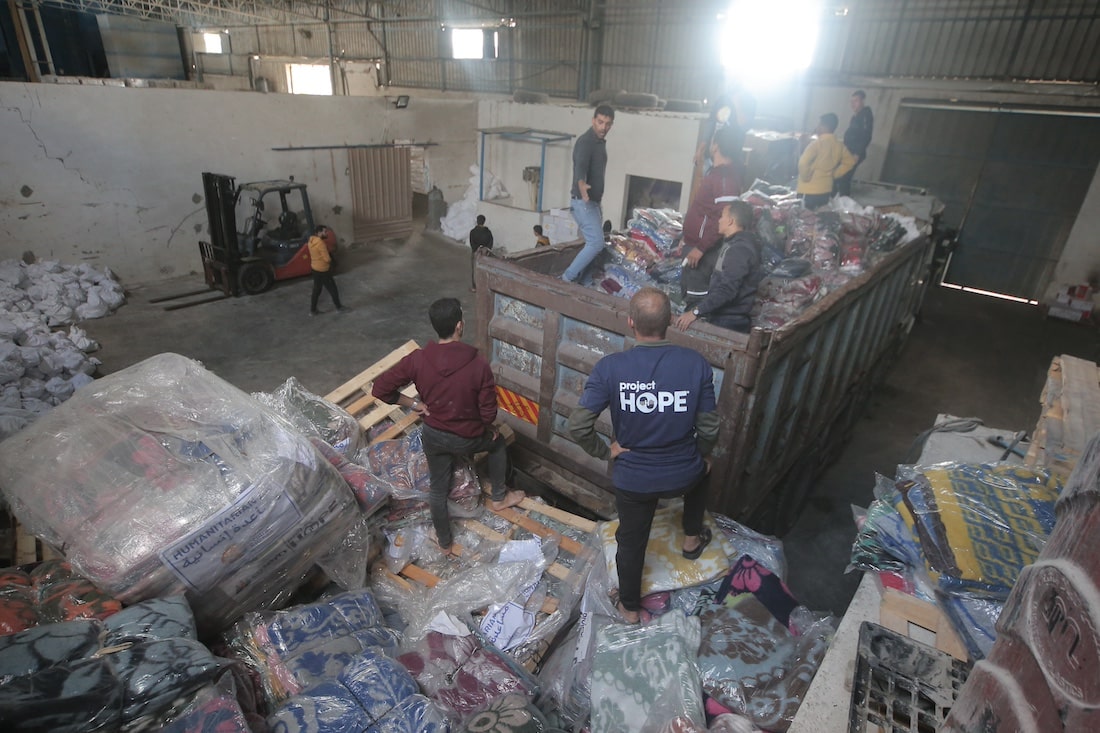
Health systems inside Gaza are at their breaking point after months of violence that has left thousands dead and 85% of the population displaced. Project HOPE established a supply chain into Gaza that included an initial shipment of family hygiene kits, 4,000 blankets, and 9,000 mattresses, seen here being loaded for delivery in southern Gaza. We also established a primary health care clinic in Deir Al Balah, Gaza and are building a medical team in Rafah to provide medical care to three schools housing internally displaced people.
>> Learn more about our response inside Gaza
Strengthening Primary Health Centers in Northwest Syria
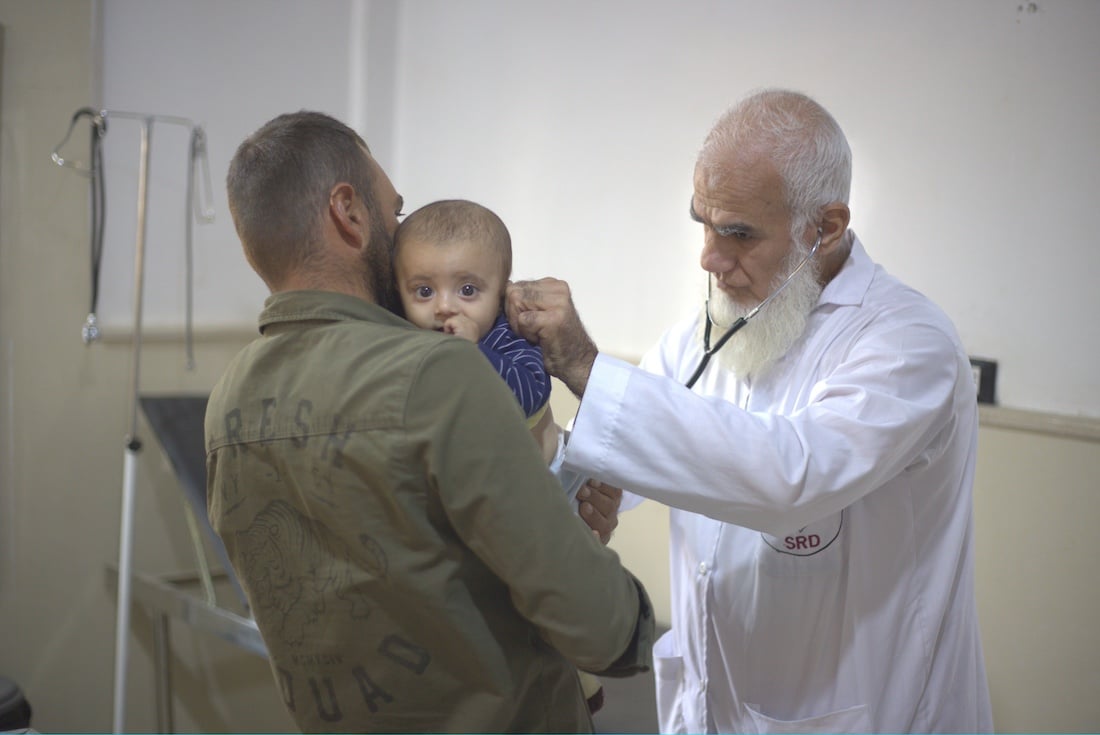
The February 2023 earthquake that rocked southern Türkiye also damaged communities in northern Syria, many of which have been facing a humanitarian crisis for more than a decade. After our initial response to the earthquake, Project HOPE is now working through partners to provide broader long-term support for the health system in northwest Syria. At Albasouta Primary Health Center, seen here, doctors from our local partner Syrian Relief and Development (SRD) provide primary care to families and children.
>> Learn more about how we’re broadening our support for health systems in northern Syria
Helping Kids Cope With a Major Earthquake in Morocco

The 6.8-magnitude earthquake that struck Morocco in September was the strongest earthquake to hit the country in over a century. The earthquake left an overwhelming need for mental health support in Morocco’s rural communities, where mental health services are scarce. Project HOPE is working through our local partners Project Soar and the High Atlas Foundation to provide mental health and psychosocial support to women and children in impacted communities — like in Achbarou, seen here, where children enjoy a day of art, games, and activities during a psychosocial workshop led by High Atlas Foundation.
>> Learn more about how Project HOPE and AstraZeneca are aiding rural Morocco’s recovery
Doing What It Takes To Deliver Vaccines in Ethiopia
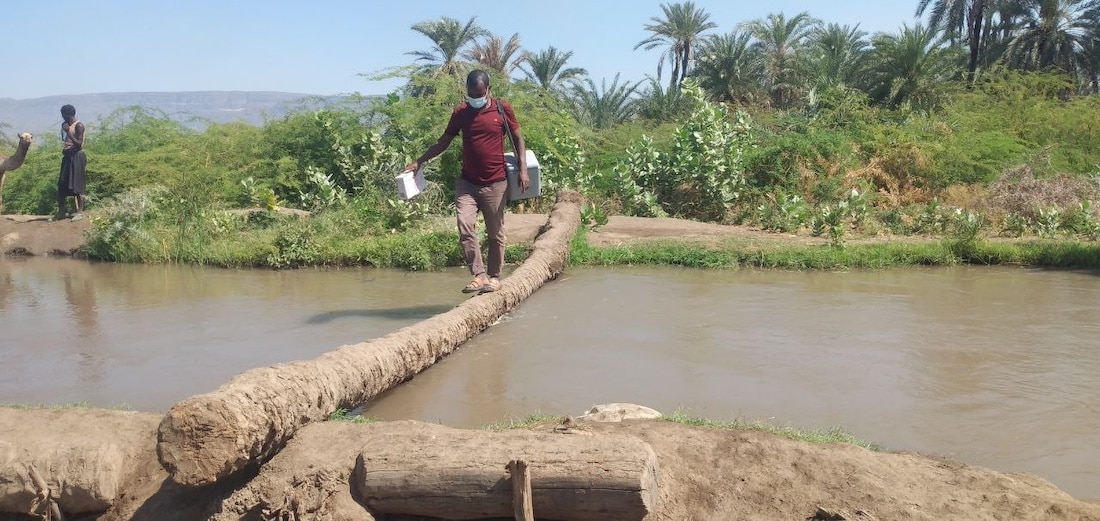
With support from the Bill & Melinda Gates Foundation, Project HOPE is expanding access to polio vaccines and other immunizations in six regions of Ethiopia — including Afar Region, which experienced flooding that forced one local health worker to cross a fallen palm tree to deliver vaccines to a community cut off from care.
>> On the Ground: The Day the Health Workers Returned
Delivering Lifesaving Relief Inside Sudan

Violent conflict erupted in Sudan in April 2023, devastating the country and claiming the lives of more than 12,000 people in the months since. With the country’s health system on the brink of collapse, Project HOPE helped coordinate the delivery of 24,000 pounds of vital medical supplies, pharmaceuticals, hygiene supplies, and therapeutic food to Sudan in October 2023. Along with key partners including Airlink, MAP International, Flexport.org, Astral Aviation, Qatar Airways, and the Sudanese American Physicians Association (SAPA), Project HOPE successfully coordinated the delivery of $13 million worth of relief to ensure that hospitals and health facilities had the supplies they need to continue treating patients.
>> Learn more about our response in Sudan
Connecting A Refugee Mother and Son to Care in Poland

Natalia and her son, Gennaidy, are Ukrainian refugees from Odesa living in Krakow, Poland. Thanks to Project HOPE’s support, Gennaidy is undergoing physical therapy at Accessible World, a Project HOPE partner in Krakow that provides physical therapy and rehabilitation services, along with art therapy, yoga, language classes, and more to help Ukrainian refugees protect their physical and mental health. “This therapy really helped because he became stronger,” Natalia says. “He became more active. He began to trust people and to be more content. We are very happy that such organizations exist and that they don’t leave us on our own.”
>> Learn how Project HOPE is supporting refugee mental health in Poland and Moldova
Supporting Ukrainians After a Devastating Dam Disaster

The June 6 destruction of the Kakhovka Dam in Ukraine was a catastrophic turn in the war for Ukrainians in the region. In the village of Novotymofiyivka, years of work were undone in an instant when flooding inundated residents’ homes. With support from USAID’s Bureau for Humanitarian Assistance, Project HOPE delivered millions of liters of clean drinking water in Kherson to help communities with the highest need. “We are very grateful to the volunteers and everyone involved that you did not forget about us,” said a local resident named Iryna. “Drinking water for us is worth its weight in gold.”
>> On the Ground: Inside the Flooded Homes of Kherson
Bringing Mothers Together for Prenatal Care in Nigeria
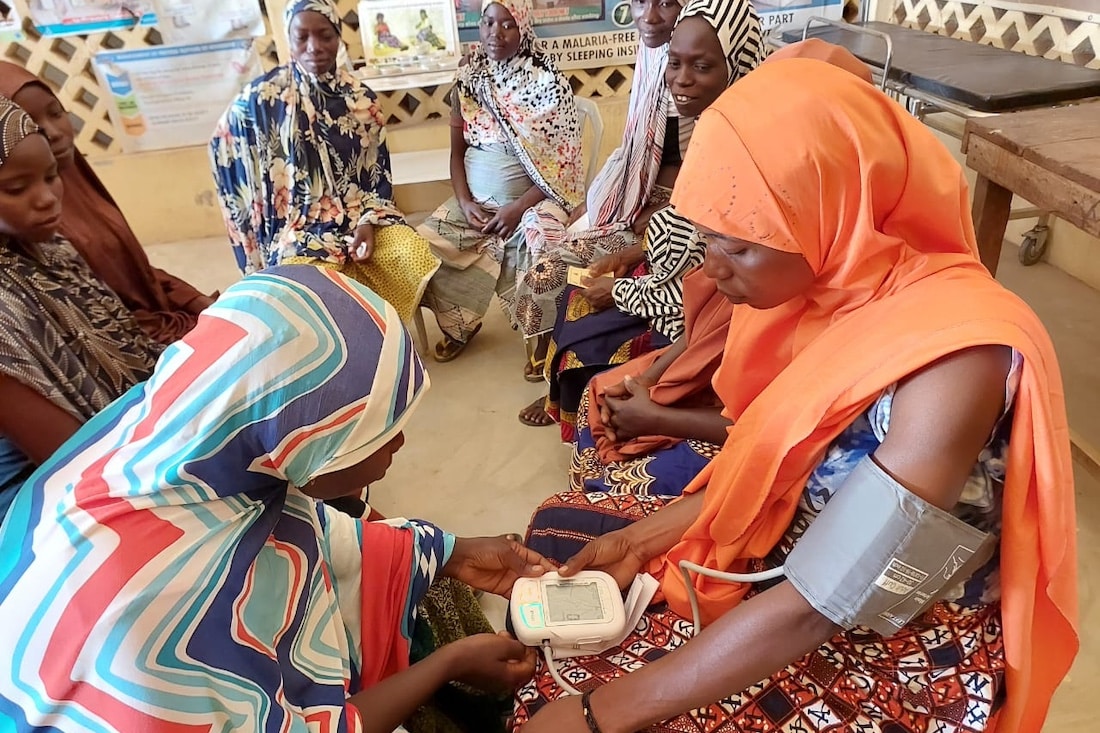
Niger State, Nigeria, has some of the highest maternal and infant mortality rates in the country. Only half of women in Niger State attend a single antenatal care visit during pregnancy, and just 9% of mothers and newborns receive postnatal care in the critical 72 hours after childbirth. Thanks to a grant from the Bill & Melinda Gates Foundation through Technical Advice Connect (TA Connect), Project HOPE is addressing these barriers by bringing thousands of women together for group antenatal care sessions where they receive health services and learn from health workers and each other about how to participate in their own care.
>> In Nigeria, Expectant Mothers Find Support in One Another
Improving Care for Venezuelan Mothers in Colombia

Colombia is home to nearly 2 million Venezuelan refugees and migrants, including large numbers of women who have had to navigate pregnancy without essential maternal health services. At Erasmo Meoz Hospital in Cúcuta, Project HOPE provides support so women can deliver their babies in safe conditions at no cost. “We have been together with Project HOPE for many years now,” says Dr. Mario Galvis, a doctor at the hospital. “This hospital doesn’t discriminate. We don’t charge anything. We’re taking away the myth that Venezuelans are taking our resources.”
>> On the Ground: A Path to Maternal Care at the Venezuela Border
Building a Brighter Future for Young Women in Namibia
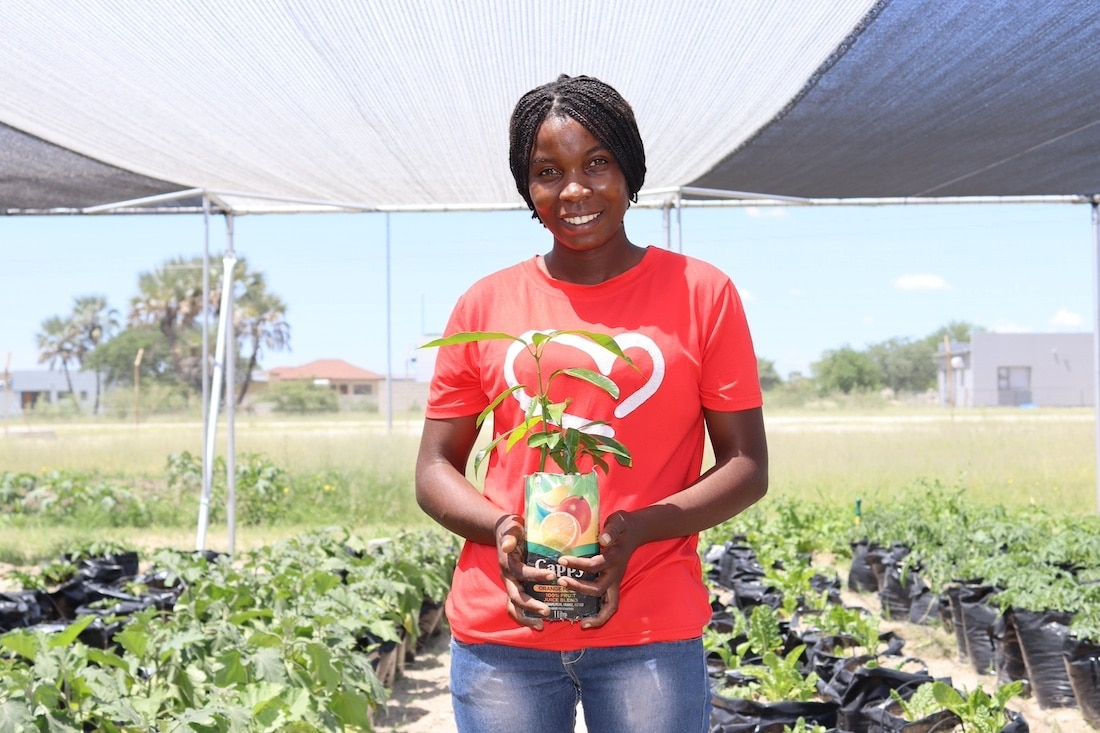
In Namibia, Project HOPE helped girls and young women reach their full potential — and lower their risk of HIV infection — through the PEPFAR/USAID-funded DREAMS program. Through DREAMS, young women received mentorships, youth-friendly sexual and reproductive health services, menstrual hygiene management materials, education support, financial literacy trainings, apprenticeships, small business support, job placements, and access to preexposure prophylaxis (PrEP) and HIV testing services. From 2018–2023, Project HOPE helped test more than 95,000 people for HIV and increased access to PrEP for 20,000 young women.
>> What Would Gender Equity Look Like Around the World?
We are so grateful to all of our colleagues, partners, and donors who have made this work possible. Thank you!
How you can help
Make a lifesaving gift to support our work now and for the future at projecthope.org/donate
Are you a health-care or other professional who would like to learn more about volunteering abroad with Project HOPE? Learn more about our volunteer program and join our volunteer roster.
Stay up-to-date on this story and our lifesaving work around the world by connecting with us on Facebook, Instagram, LinkedIn, Twitter, Youtube, TikTok, and help spread the word by sharing stories that move and inspire you.